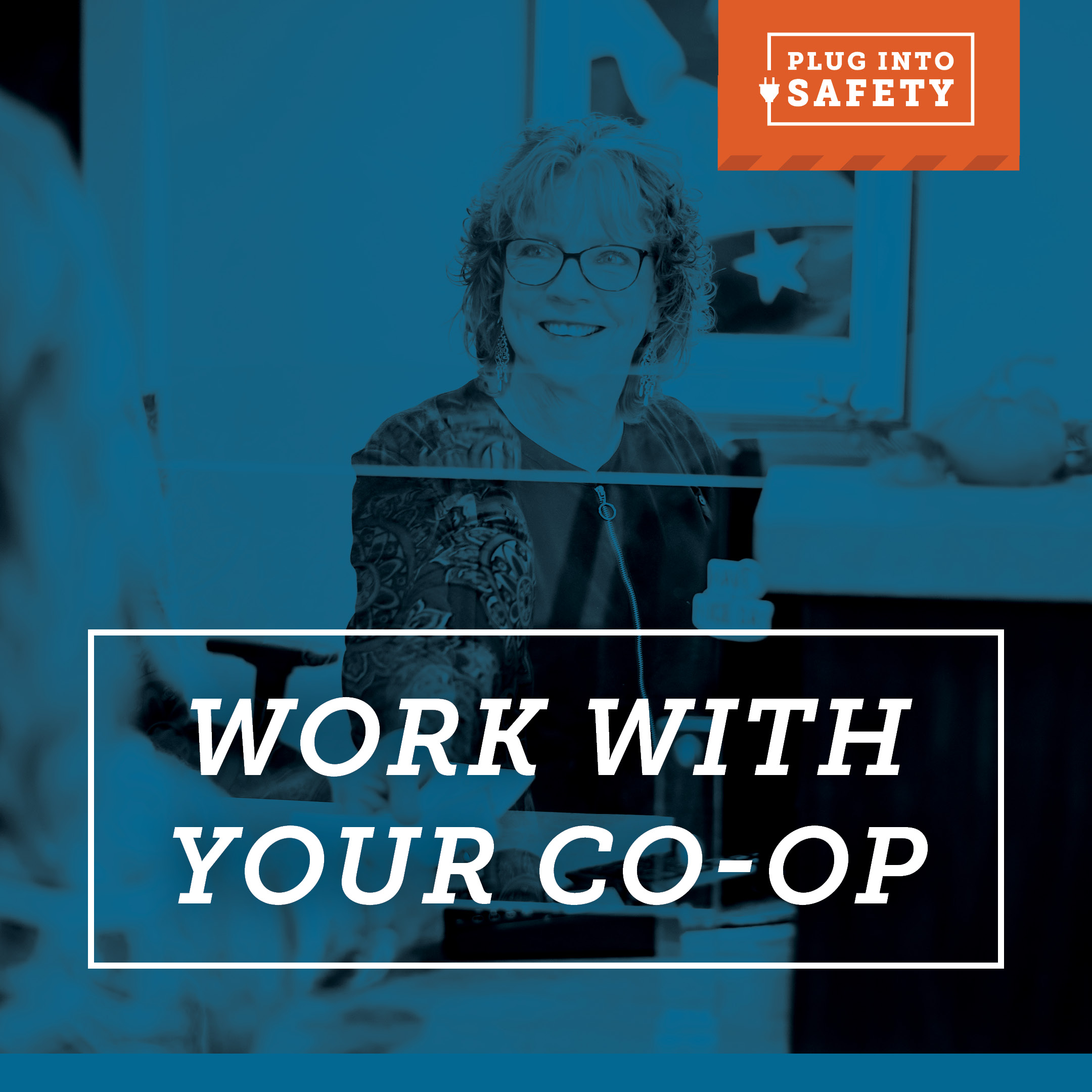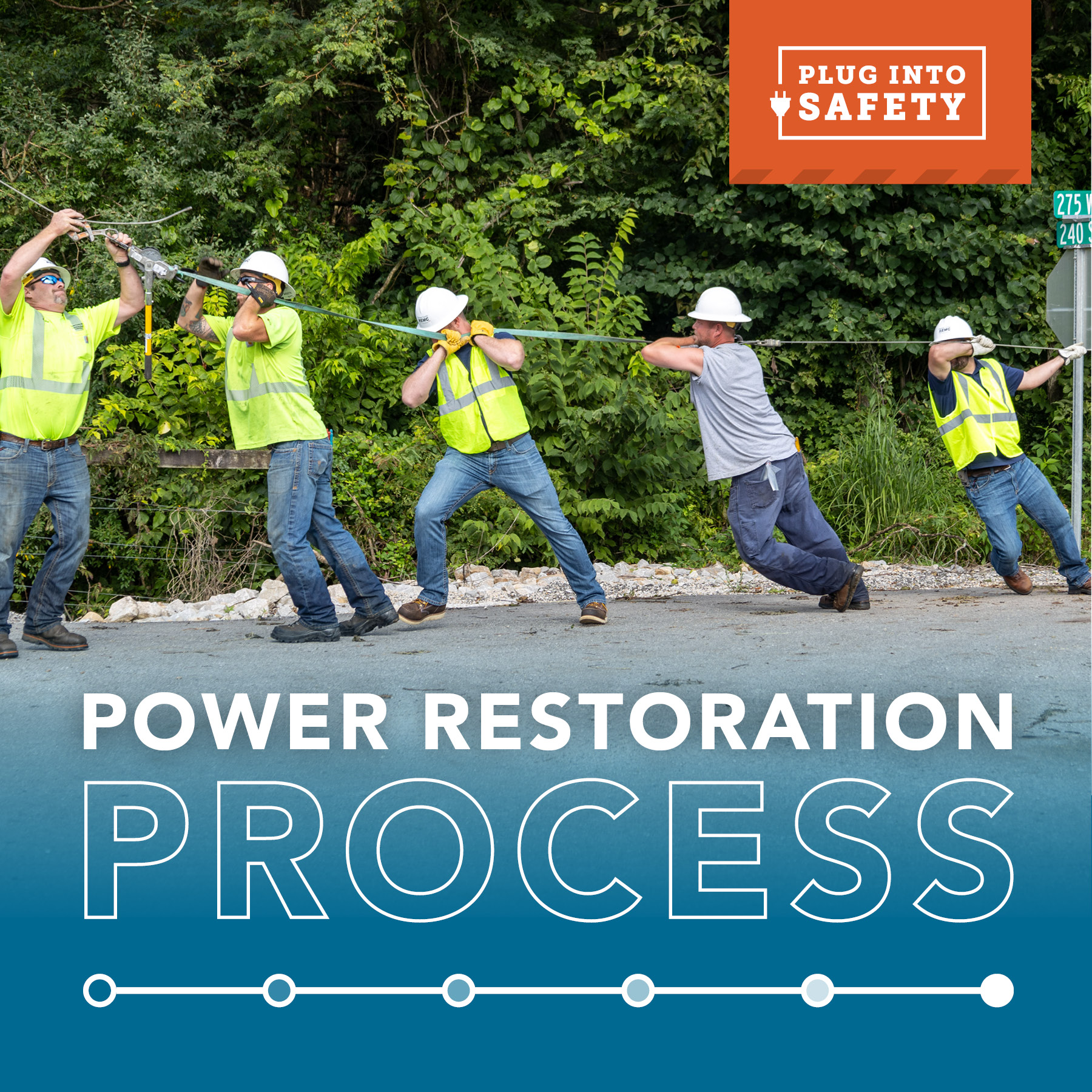Because families enjoy spending time together and relaxing in the living room, it’s important to make sure that room is safe for people of all ages.
“Too many fires start in living rooms because of the high number of electronics and flammable objects,” said Tom VanParis, CEO at Indiana Electric Cooperatives. “This could be avoided by following simple electrical safety protocols.”
In 2011, nearly 50,000 homes in the United States caught on fire due to electrical failures or malfunctions, according to the National Fire Protection Association. The organization estimates that 23 percent of the deaths from home fires that year started with an electrical problem in a living room, family room or den.
That’s why it’s especially important to take the time to inspect your living room and address any potential problems, VanParis said.
One potential problem could be the surge protector you may use to ensure your electronic items are not affected during power outages. Electrical fires can develop from too many high-powered electronics plugged into the strip.
On the other hand, unused outlets can pose an electrical fire threat as well. Place plastic safety caps in outlets that don’t have a plug in them, and ask an electrician to inspect outlets and tighten any loose connections.
Watch out for space heaters and electric fireplaces, too. Neither is intended to be a permanent heat source. Never leave them turned on alone or for long periods of time. Space heaters can tip over and start a fire. Electric fireplaces, however, are considered safer because they are sturdier and less likely to fall.
Make sure you do not use an extension cord with an electric heater. The cord can catch on fire as it transfers a large amount of energy.
Here are some questions you should consider regarding electrical safety in your living room:
- Are light bulbs the appropriate wattage for the fixture? A bulb with a wattage that’s too high may overheat and cause a fire.
- Are cords in good condition (not frayed or cracked)?
- Do all extension cords have safety covers on the unused plugs?
- Are extension cords carrying more than their proper load? Check the electrical rating on the appliance and cord.
- Are extension cords used only for temporary reasons? These cords are not safe for permanent use. Install receptacles where needed.
- Does your portable heater have a seal from a nationally recognized testing laboratory? Unapproved heaters provide less assurance that safety features are adequate.
- Are cords for electronics placed out of the way so someone cannot trip on them?
Inspect your living room regularly so you can fix potential problems and prevent electrical fires in one of the most popular rooms of your home.
Sources: National Fire Protection Association, National Center for Healthy Housing, Liberty Mutual Insurance
How can you keep your living room safe? Here are some helpful questions to consider from Indiana Electric Cooperatives:
- Are lightbulbs the appropriate wattage for the fixture? A bulb with a wattage that’s too high may cause a fire through overheating.
- Are cords in good condition (not frayed or cracked)? Damaged cords can lead to electric shock and are a fire hazard.
- Do all extension cords have safety covers on the unused plugs? Cover empty outlets to block children from touching live circuits.
- Are extension cords carrying more than their proper load? Check the electrical rating on the appliance and cord.
- Are extension cords used only for temporary reasons? These cords are not safe for permanent use. Install receptacles where needed.
- Does your portable heater have a seal from a nationally recognized testing laboratory? Unapproved heaters provide less assurance that safety features are adequate.
- Are cords for electronics placed out of the way so someone cannot trip on them?
- Are rugs hiding extension cords you are using? Covering the cord stops heat from escaping.
Helpful living room tips from Indiana Electric Cooperatives:
- Replace frayed or cracked electrical cords.
- Cover empty outlets and unused plugs on extension cords.
- Check the electrical rating on an appliance and its extension cord to make sure the extension cord isn’t carrying more than its proper load.
- Use extension cords only on a temporary basis.
- Place cords out of the way, so someone cannot pull down or trip over one.
- Unplug a portable heater after use or at nighttime.
- Make sure light bulbs are the appropriate wattage for the fixture.





